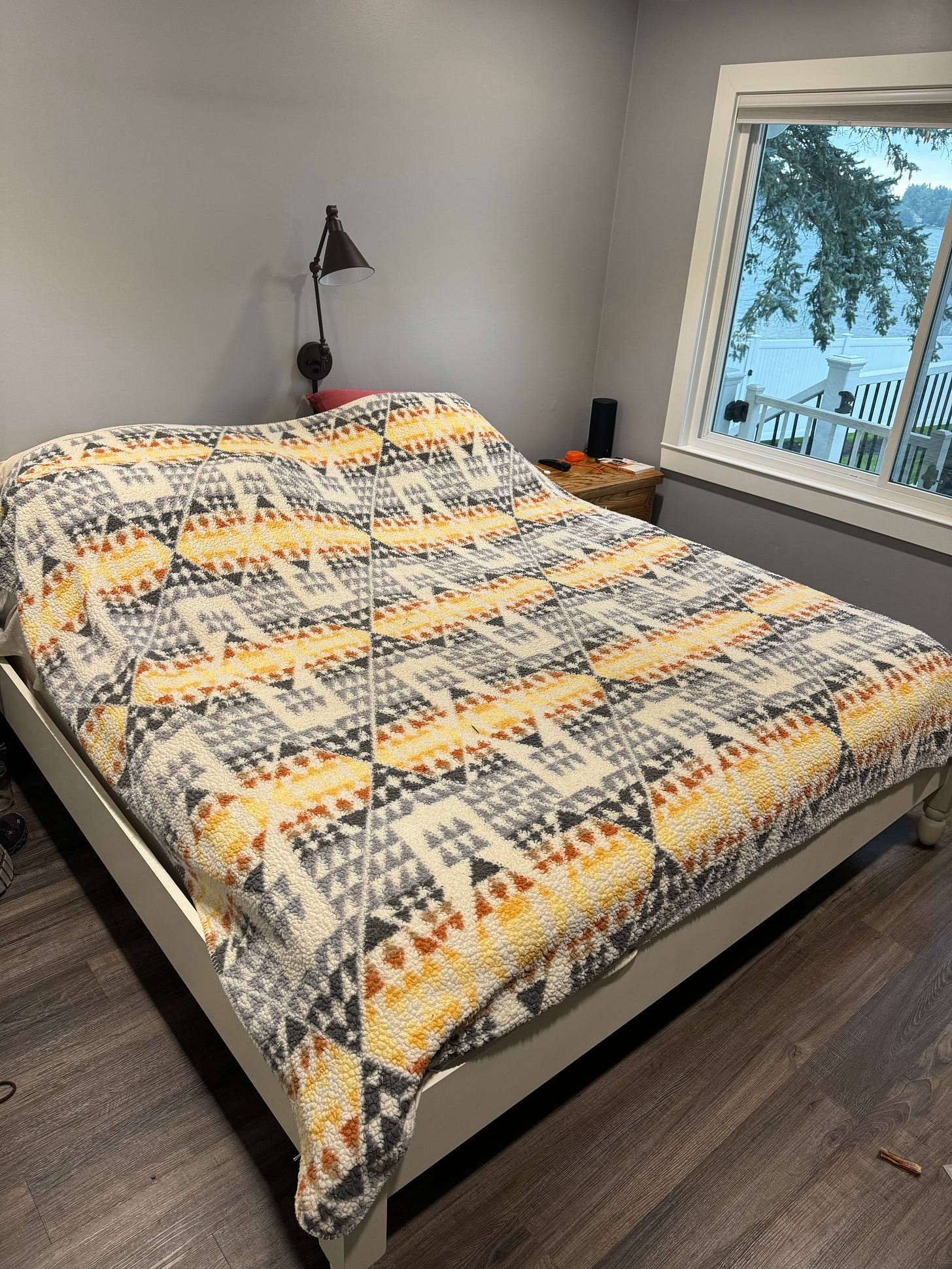The Fog & The Fraud
I confess: I've been depressed for about a week.
This is a hard post to write. It’s uncomfortable talking about sadness. Many of us have been conditioned to think that it’s unproductive or even wrong to discuss. While I do think there is some truth to the idea that we shouldn’t overly focus on our negative emotions, I also think that ignoring these feelings can give others the incorrect impression that everyone else has their life figured out and that when you are personally struggling with the feelings of sadness, it can make you feel like the only one experiencing those feelings.
After I started writing the Year Of The Opposite, I was shocked to discover how many of my close friends and family had also struggled with similar feelings that I experienced. I share this post reluctantly and it makes me feel quite vulnerable. But I want to do it because I think it’s important to be honest about the positives and the negatives. I don’t just want to show an Instagram highlight reel of my life. I don’t think that is fair, and it’s certainly not accurate. I suspect, it’s not accurate for anyone. So here it goes…
Confession: I’ve been feeling depressed for about a week now. It’s a persistent fog of worthlessness and loneliness that weighs heavily on me, despite, paradoxically, being surrounded by loved ones.
Logically, I know these feelings make no sense, yet they drift through my mind like a fog, dulling the light and leaving only shadows behind.
I’m fully aware of what can lift this fog—taking the necessary actions that I’ve learned will pull me out. But here I am, avoiding them, stuck in a cycle of inaction.
It’s a strange and unsettling realization: I’ve achieved everything I once believed would bring me happiness, yet the fulfillment I sought seems elusive. The goals that once held the promise of contentment now feel hollow, revealing a deeper truth that I’m grappling with. It’s not the destination that brings peace; it’s the journey. The process, the daily grind, the struggles—this is where life truly happens. (Why is it that all the old platitudes seem to be so accurate?!)
I know what I need to do to regain my footing. Habits like running, eating healthy, reading, avoiding the news, and not checking my phone in the morning or night—these are the practices that keep me grounded, stave off the darkness, and restore my sense of well-being. But lately, I haven’t been doing them. Instead, I’m stuck in a loop of avoidance, fully aware of what works but unable to take action. It’s like standing at the edge of a cliff, knowing I need to step back but feeling frozen in place.
And here’s where another, deeper weight presses on me—the sense of being a fraud. I’ve challenged others to face their depression, to take control and make the changes that can pull them out of the darkness. And it worked for them. But now, as I struggle to apply that same advice to myself, I feel like a liar, a hypocrite. How can I guide others when I’m floundering in the same waters? It’s a disheartening contradiction that only adds to the fog.
In a recent challenge I issued, others found their way through their struggles by following the very steps I’ve been avoiding. You can read about their successes here. Their triumphs should inspire me, but instead, they highlight my own inaction, making the weight of this fog even heavier.
Being a hyper-achiever myself, I’ve always been drawn to the powerful illusion that happiness is just around the corner.
Once I reach this milestone, once I make this much money, once I have this title—then I’ll be happy. But each time I’ve reached that point, the happiness was fleeting at best, and soon I was setting my sights on the next goal, convinced that this time it would be different. It’s a cycle that has driven me forward, but also one that has kept true contentment just out of reach.
Goals are essential. They give us direction and a reason to push forward. But the real value lies not in the accomplishment itself, but in the process of getting there. The struggle, the learning, the day-to-day efforts—this is where we grow, where we build our character, and where we find the small joys that, when added up, lead to something far more meaningful than mere satisfaction.
Happiness isn’t something you find at the end of the road. It’s something you experience along the way, woven into the very fabric of the journey. The destination may offer a fleeting sense of success, but it’s the journey that shapes who we are and how we live.
When I started writing this post at 8 a.m. on August 15th, I was still deep in that fog, feeling sad and depressed. But as the day went on, and I began taking the actions I know work—including writing this post—the fog started to lift. By 10 p.m., the heaviness had already begun to fade, proving once again that the steps I advocate for others are just as crucial for myself.
This experience reminds me that none of my posts are meant to lecture others. They’re always reminders to myself because I’m still very much a work in progress. Even as I challenge others to grow, I’m on the same journey, facing the same struggles, and learning the same lessons. The process is ongoing, and it’s in these small, daily victories that I find my way out of the darkness, one step at a time.
And today, August 16th, I started where it all began. By the small step of making my bed. I already feel a little better.
On a completely unrelated note, I got to see the Northern Lights for the first time this week in Northport MI.





Travis, your vulnerability is a strength. Thanks for the reminder that even the most driven of us need to step back and recalibrate sometimes.
Hey Travis—Thank you for sharing your journey. I can relate to your post. I, too, was/am a high achiever. When I checked into treatment in 1987, I was encouraged to listen more than I talked. Sobriety was new to me and my life was a mess. So I listened and learned. After a few months, I realized I could be helpful to those who were brand new so I started sharing a bit more of my story. After a few years and lots of accomplishments—things I could have never done as a drunk—I started to have depression combined with these overwhelming feelings of inadequacy (or maybe I had those feelings all along but I was just so busy, I didn’t take the time to acknowledge them). So I started questioning myself—how can I share my experience with others if I can’t even follow my own advice? It was pointed out to me by my therapist and others whom I trusted that not only was I a high-achiever, I was a also a perfectionist—which is the destructive flip-side of the high achiever coin. I am re-reading this book for the 7th time “The Spirituality of Imperfection” by Ernest Kurtz and Katherine Ketcham. I am
37 years sober and still need to be reminded frequently that all of which I experience and my reactions to those experiences are what makes me human.